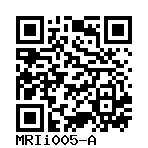MRIi005-A
General
Cell Line |
|
| hPSCreg name | MRIi005-A |
| Cite as: | MRIi005-A (RRID:CVCL_B938) |
| Cell line type | Human induced pluripotent stem cell (hiPSC) |
| Similar lines |
TAUi006-A (UTA.00102.LQT1) Donor's gene variants: KCNQ1 – potassium voltage-gated channel subfamily Q member 1 Donor diseases: Long QT Syndrome 1 TAUi006-B (UTA.00118.LQT1) Donor's gene variants: KCNQ1 – potassium voltage-gated channel subfamily Q member 1 Donor diseases: Long QT Syndrome 1 TAUi007-A (UTA.00208.LQT1) Donor's gene variants: KCNQ1 – potassium voltage-gated channel subfamily Q member 1 Donor diseases: Long QT Syndrome 1 TAUi007-B (UTA.00211.LQT1) Donor's gene variants: KCNQ1 – potassium voltage-gated channel subfamily Q member 1 Donor diseases: Long QT Syndrome 1 LUMCi039-A (LQT1-1781G/A hiPSC, LUMC0021iKCNQ-30) Donor's gene variants: KCNQ1, KCNQ1 Donor diseases: Long QT Syndrome 1 UKBi003-A (iLB-MJD1-32m-r9, LB-32-r9) Donor's gene variants: ATXN3, ATXN3 Donor diseases: Machado-Joseph disease UKBi008-A (iLB-MJD4-34m-r1, LB-34-1) Donor's gene variants: ATXN3, ATXN3 Donor diseases: Machado-Joseph disease UNEWi026-A (SF116 clone 1) Donor's gene variants: CFH Donor diseases: type 2 diabetes mellitus age-related macular degeneration UNEWi026-B (SF116 clone 2) Donor's gene variants: CFH Donor diseases: type 2 diabetes mellitus age-related macular degeneration UNEWi026-C (SF116 clone K) Donor's gene variants: CFH Donor diseases: type 2 diabetes mellitus age-related macular degeneration UCLi006-A (LCMD-L302P-UCL01C2) Donor's gene variants: LMNA Donor diseases: Congenital muscular dystrophy due to LMNA mutation UKBi007-A (LB-33-5, iLB-MJD3-33f-r5) Donor's gene variants: ATXN3, ATXN3 Donor diseases: Machado-Joseph disease UKKi007-A (NP0014-6, UKK007Ai) Donor's gene variants: RYR2, RYR2 Donor diseases: Catecholaminergic polymorphic ventricular tachycardia UKKi007-B (NP0014-5) Donor's gene variants: RYR2 Donor diseases: Catecholaminergic polymorphic ventricular tachycardia |
| Last update | 20th April 2022 |
| User feedback | |
Provider |
|
| Generator |
Klinikum rechts der Isar (MRI)
Contact:
Klinikum rechts der Isar (MRI) |
External Databases |
|
| BioSamples | SAMEA8073003 |
| Cellosaurus | CVCL_B938 |
| Wikidata | Q54903000 |
General Information |
|
| Publications | |
| Projects | |
| * Is the cell line readily obtainable for third parties? |
Yes Research use: allowed
Clinical use: not allowed
Commercial use: not allowed
|
Donor Information
General Donor Information |
|
| Sex | male |
| Ethnicity | Caucasian |
Phenotype and Disease related information (Donor) |
|
| Diseases | A disease was diagnosed.
|
External Databases (Donor) |
|
| BioSamples | SAMEA8073004 |
Ethics
| Has informed consent been obtained from the donor of the embryo/tissue from which the pluripotent stem cells have been derived? | Yes |
| Was the consent voluntarily given? | Yes |
| Has the donor been informed that participation will not directly influence their personal treatment? | Yes |
| Can you provide us with a copy of the Donor Information Sheet provided to the donor? | Yes |
| Do you (Depositor/Provider) hold the original Donor Consent Form? | Yes |
| Please indicate whether the data associated with the donated material has been pseudonymised or anonymised. | pseudonymised |
| Does consent explicitly allow the derivation of pluripotent stem cells? | Yes |
| Does consent prevent CELLS DERIVED FROM THE DONATED BIOSAMPLE from being made available to researchers anywhere in the world? | No |
Does consent permit research by | |
| an academic institution? | Yes |
| a public organisation? | No |
| a non-profit company? | No |
| a for-profit corporation? | No |
| Does consent expressly permit collection of genetic information? | Yes |
| How may genetic information associated with the cell line be accessed? | No information |
| Will the donor expect to receive financial benefit, beyond reasonable expenses, in return for donating the biosample? | No |
| Has a favourable opinion been obtained from a research ethics committee, or other ethics review panel, in relation to the Research Protocol including the consent provisions? | Yes |
| Name of accrediting authority involved? | Ethical Commission of the Faculty of Medicine (TUM) |
| Approval number | 2109/08 |
| Has a favourable opinion been obtained from a research ethics committee, or other ethics review panel, in relation to the PROPOSED PROJECT, involving use of donated embryo/tissue or derived cells? | Yes |
| Name of accrediting authority involved? | Ethical Commission of the Faculty of Medicine (TUM) |
| Approval number | 2109/08 |
| For generation of the cell line, who was the supplier of any recombined DNA vectors or commercial kits used? | |
hIPSC Derivation
General |
|
| Source cell type |
Any skin fibroblast that is part of some dermis.
|
Reprogramming method |
|
| Vector type | Integrating |
| Vector | Virus (Retrovirus) |
| Is the used vector excisable? |
Unknown |
| Absence of reprogramming vector(s)? |
Unknown |
| Reprogramming vectors silenced? | |
Vector free reprogramming |
|
Other |
|
| Derived under xeno-free conditions |
Unknown |
| Derived under GMP? |
Unknown |
| Available as clinical grade? |
Unknown |
Culture Conditions
| Medium |
Other medium:
Base medium: DMEM/F12
Main protein source: Knock-out serum replacement Serum concentration: 20 % Supplements
|
Characterisation
Analysis of Undifferentiated Cells
| Marker | Expressed | Immunostaining | RT-PCR | Flow Cytometry | Enzymatic Assay | Expression Profiles |
| NANOG |
Yes |
|||||
| TRA 1-81 |
Yes |
Score:
| Marker | Present | Absent |
| mCpG | ||
| OCT4 |
Morphology pictures
Differentiation Potency
Microbiology / Virus Screening |
|
Genotyping
Karyotyping (Cell Line) |
|
| Has the cell line karyotype been analysed? |
Unknown
|
Other Genotyping (Cell Line) |
|


Login to share your feedback, experiences or results with the research community.